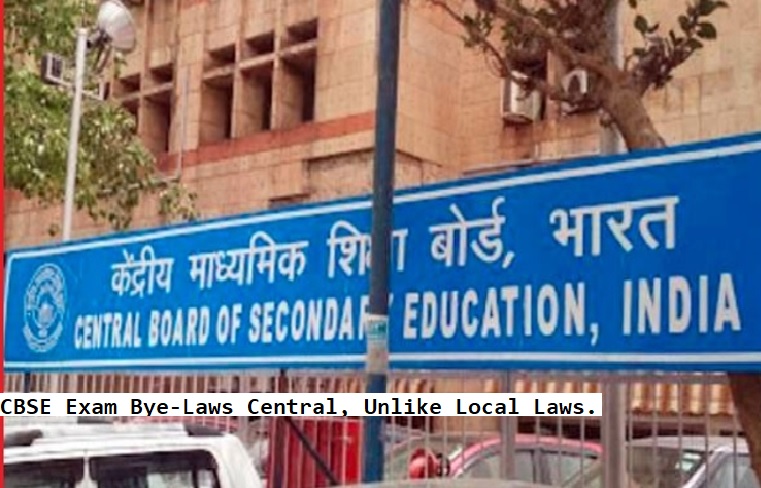


The Delhi High Court recently rendered a significant judgment affirming the distinctive nature of the CBSE Examination Bye-Laws, asserting that they are centrally governed and do not align with local state acts or regulations. The ruling, delivered by a division bench comprising Acting Chief Justice Manmohan and Justice Mini Pushkarna, sheds light on the precedence of CBSE Exam Bye-Laws over conflicting provisions in the KVS (Kendriya Vidyalaya Sangathan) Education Code.
The case under consideration involved a Class XI student from Kendriya Vidyalaya Shool (KVS), who sought promotion based on marks obtained in Physical Education, an additional subject, rather than Mathematics, in which he had failed to qualify. The court's observation was clear: when a contradiction arises between the CBSE Examination Bye-Laws and the KVS Education Code, the former prevails.
In upholding the single judge's order, the bench emphasized the supremacy of the CBSE Examination Bye-Laws in determining the fate of the student. The student's substitution of Mathematics marks with those from Physical Education was deemed valid under the CBSE Bye-Laws, leading to his fulfillment of promotion criteria for Class XII.
The court dismissed the challenge put forth by Kendriya Vidyalaya Sangathan, highlighting that the KVS Education Code lacks provisions for substituting marks in an additional subject if a candidate fails to meet the minimum qualifying marks in a main subject. The ruling underscored the specific conditions laid down in the CBSE Examination Bye-Laws, which, when applied, rendered the student eligible for promotion.
The judgment delves into the core principle of uniformity among all CBSE-affiliated schools in imparting education and conducting examinations. The bench articulated that for the CBSE's objectives to be met, there must be consistency in the application of Bye-Laws across all affiliated schools. Allowing each school to adopt different criteria for internal examinations in Class XI could jeopardize this uniformity.
The court emphasized that the internal examination pattern for Class XI must align with the standards set for Class XII examinations by the CBSE. This alignment ensures a cohesive approach to education and evaluation throughout the affiliated schools, fostering uniformity in the educational system.
The judgment is significant not only for the immediate case but also for establishing a precedent regarding the application and supremacy of CBSE Examination Bye-Laws. By reiterating the need for consistency in the internal examination process, the court has reaffirmed the central role of CBSE Bye-Laws in shaping the educational landscape for affiliated schools.
Furthermore, the ruling has broader implications for the education system, emphasizing the importance of adhering to a standardized approach in examinations. It underscores the CBSE's role in providing a framework that promotes fairness, equality, and uniformity, ensuring that students across affiliated schools are subject to consistent evaluation criteria.
In conclusion, the Delhi High Court's recent judgment reinforces the centrality of CBSE Examination Bye-Laws in shaping the promotion criteria for students in affiliated schools. The decision not only resolves the specific case at hand but also establishes a guiding principle for maintaining uniformity and consistency in the application of CBSE Bye-Laws across the educational spectrum.
TAGS: Delhi High Court CBSE Examination Bye-Laws Central Bye-Laws Local State Acts KVS Education Code Division bench